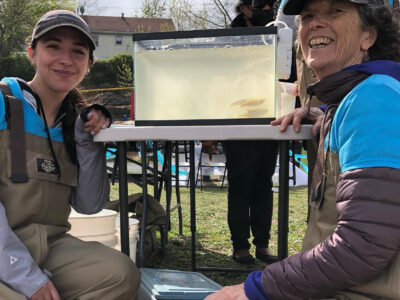As if the people of Iraq didn’t have enough problems – a bloody war that won’t seem to quite end, an occupying army, trying to form a new government that functions – they also don’t have enough water.
In a place like Iraq, our attention is on the big issues, and we might forget that life also goes on for regular people. They need to grow crops and wash dishes and make tea. For many people in the country, those mundane things can be every bit as big an issue. If you don’t have water to drink, that is an immediate crisis.
In a recent Reuters article, Aseel Kami quotes someone in one of those water-poor areas of Iraq, “‘We depend on this water truck. If it did not come for any reason, on that day a glass of water would be as precious as a human soul … we would be left without anything. No bathing and no drinking water,’ said Dakheel.”
The author says, “According to government statistics cited by the ICRC, one in four of Iraq’s 30 million people does not have access to safe drinking water.”

What are the water issues in Iraq?
In a related Reuters report, Serena Chaudhry gives an excellent account of the problem. Chaudhry says, “A country dominated by arid desert landscapes, it has one of the most extensive irrigation systems in the world but years of war, underinvestment and sanctions have prevented it from properly harnessing what little water it has left. Iraq’s main rivers, the Euphrates and the Tigris, provide little relief to the parched plains as hydroelectric dams in neighboring Turkey, Iran and Syria have stemmed the water flow.”
Chaudhry explains that:
- Water levels in the rivers have dropped
- Failing crops have forced possibly millions of people out of rural areas and into cities
- 83 percent of sewage is discharged untreated
- Government disorganization means improvement projects are delayed
- US Government reconstruction efforts include sewage and water, but can’t solve the whole problem
- Oil production requires huge amounts of water (1.6 barrels of water for each 1 barrel of oil), so personal and agricultural consumption competes with economic development
In addition we find that:
- US military forces require a lot of water, and sometimes run out. Then they resort to desperate measures.
- Water rights dominate Iraq’s relationships with neighboring countries.
- Soil salinity and water scarcity are reducing food production.
- Lack of water threatens national hydroelectric production.
The polluted Shatt al Arab waterway south of Basra:

As the US continues to try to figure out its role and responsibility in Iraq, the factor of water cannot be left out. Can there be a lasting peace and stability without enough water for a cup of tea?
A New York Times article quotes, “The problem of wars has been solved,” said Faaq Fadhil, the director of irrigation in Abu Khassib, a village south of Basra. “Now we must solve the problem of the environment.”
—
Follow Columbia Water Center on Twitter



